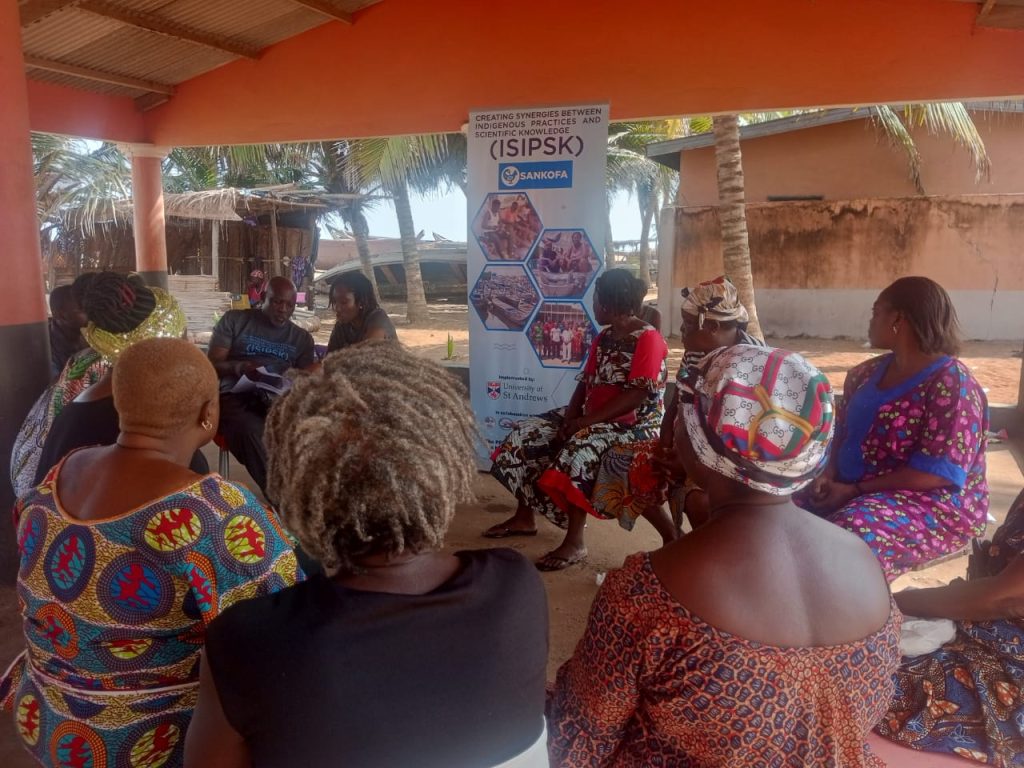By Laudia Sawer
Tema, July 3, GNA -Nana Kweigyah, the President of the Canoe and Fishing Gear Owners Association of Ghana (CaFGOAG) has urged fishermen to fully participate in the ongoing Creating Synergies between Indigenous Practices and Scientific Knowledge (ISIPSK) Sankofa research project.
The project, an initiative of the School of Geography and Sustainable Development, at the University of St Andrews in Scotland, in collaboration with other stakeholders, is being led by Dr. Ife Okafor-Yarwood, a Lecturer in Sustainable Futures at the School of Geography and Sustainable Development, University of St Andrews, as part of her PEW Marine Fellowship and supported by Mrs. Josephine Laryea Asare for her PhD research.
Nana Kweigyah, speaking with the Ghana News Agency, said the research project sought to advance knowledge on the gendered socio-economic impacts of the closed season and identify indigenous practices of fishing communities that can be integrated into marine conservation.
He said a one-month intensive data collection on the Sankofa project had begun at Abeliakope in the Volta Region, alongside the observation of the closed fishing season in Ghana, which commenced on July 1, 2024, and was expected to last for one month for artisanal fishing and two months for industrial fishing.
He added that other fishing communities where data would be collected included Abutsiakope in the Volta Region, Akplabanya and Tema in the Greater Accra Region, Apam and Cape Coast in the Central Region and Abuesi and Sekondi in the Western Region.
The CaFGOAG president indicated that the data collection was being done through questionnaires, in-depth interviews, and focused group discussions, in which the fisherfolk, made up of fishermen, fish processors, and traders, participated.
He said the data collection will continue until the end of the month of July and could be extended when necessary.

He noted that the data collection would cover preparations made ahead of the closure of the sea, what coping strategies are adopted, Indigenous practices that are known to the community, and Indigenous practices fishers want to be reintroduced.
Other questions cover how the closed season impacts the activities of fishermen, fish processors, and traders, as well as other service providers, and the availability of alternative sources of fish to process and trade during the closure.
GNA